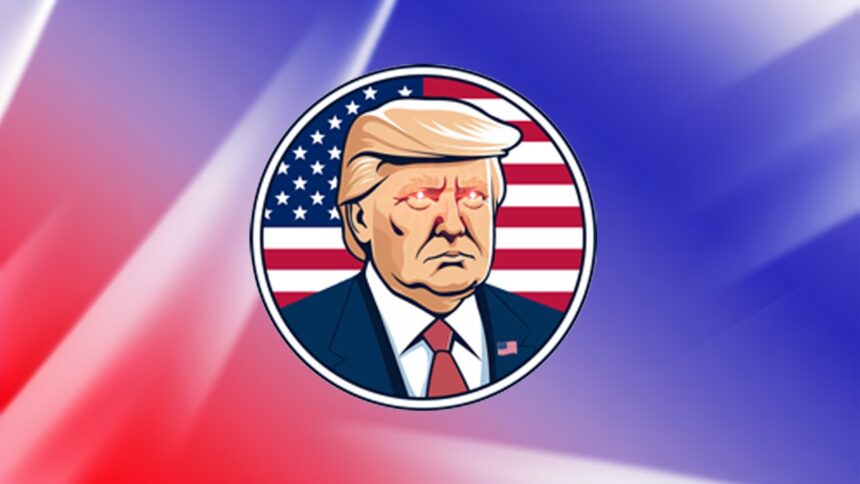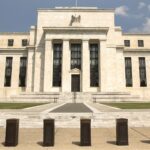Political Memecoins
Political memecoins are tokens themed around actual politicians or their campaigns. They tend to trade more on narrative or community sentiment rather than on utility, which can lead to price increases during election cycles. Most of these memecoins are launched on Solana or Ethereum, with platforms like Pump.fun reducing costs and facilitating the creation of numerous short-lived tokens.
In 2025, the distinction between satire, fandom, and what some traders mistakenly believed to be official endorsements became increasingly blurred. A notable example is Donald Trump’s Official Trump (TRUMP) token on Solana, which was marketed as a meme asset linked to his public persona rather than a financial instrument. The 2024 rise of a different “DJT token” highlighted the risks involved, as speculation poured in based on rumors of campaign support, despite official denials. This incident emphasized how quickly unverified claims can impact markets.
Did you know? During the 2024 US election cycle, crypto-linked political action committees (PACs) spent over $130 million on congressional races, with Coinbase being the largest contributor.
Donald Trump and Crypto
Three projects have defined Donald Trump’s presence in the crypto world, yet one factor remains consistent: volatility. Investors should depend on primary disclosures and verifiable on-chain addresses to differentiate marketing from confirmed realities. Launched just before the 2025 inauguration, one token reached multibillion-dollar valuations and became a part of Trump-branded promotions, offering perks like VIP dinners and merchandise. These promotions boosted visibility but also contributed to significant price fluctuations.
A separate Solana token experienced a surge based on rumored connections to the Trump family before collapsing when those claims were proved unsubstantiated. The absence of on-chain connections or campaign statements to validate backing serves as a cautionary tale about trading based on unverifiable narratives.
Trading commenced early in September with substantial volume and rapid price changes. Media reports indicated the family held nearly 25% of the supply, yet details regarding lockups and distribution remain ambiguous. The token’s debut price was around $0.30, which dropped into the low $0.20s before partially recovering (thus resembling more of a volatile listing than a stable asset).
Did you know? At the height of the 2024 DJT rumor cycle, over 200 Trump-branded tokens emerged across Solana, BNB Chain, and Ethereum within a single week.
California’s Digital Financial Assets Law
California’s Digital Financial Assets Law (DFAL), established through Assembly Bill 39 and Senate Bill 401, introduces a licensing and compliance framework for companies providing digital asset services to state residents. Activities covered under this law include exchange, transfer, and custodial services. The compliance deadline was pushed back by AB 1934, moving the start date from July 1, 2025, to July 1, 2026, allowing businesses additional time to apply or request exemptions.
The state’s Department of Financial Protection and Innovation (DFPI) has already outlined its enforcement strategies. On June 25, 2025, the DFPI executed its first action under DFAL: a consent order against Coinme. The settlement included a $300,000 penalty and $51,700 in restitution, signaling that companies servicing Californians will be held accountable.
For political memecoins and the platforms hosting them, DFAL may apply if California users are involved. Compliance requirements, truthful marketing, and consumer protection standards will fall under the jurisdiction of the DFPI. Marketplaces, promoters, and liquidity providers should anticipate further guidance but must also recognize their real compliance responsibilities if their services involve the state.
Gavin Newsom’s “Trump Corruption Coin”
During Politico’s Sacramento Summit in late August, California Governor Gavin Newsom suggested the concept of a “Trump Corruption Coin.” He described it as satire, placed alongside parody campaign merchandise, and framed it as a critique of Trump’s affinity for crypto-themed branding. There is no contract, blockchain reference, or launch timeline associated with this idea, but Newsom highlighted that it was intended as political commentary rather than a legitimate token. This approach aligns with his broader message that Trump’s political style undermines democratic norms, including free elections and the rule of law.
By utilizing meme-driven tactics, Newsom emulates Trump’s online style while seeking to turn the narrative against him.
Did you know? Satirical currencies are not a new phenomenon. During the French Revolution, locals circulated “assignat” notes featuring mocking slogans aimed at political adversaries.
For Traders: Evaluating Political Memecoins
Political tokens are primarily driven by narratives, so they should be approached with added caution. A practical strategy is to utilize a quick checklist before trading. Confirm whether there is a verifiable “official” link, such as a campaign statement, a signed wallet, or a contract linked through verified accounts. The case of the 2024 DJT token demonstrated how prices can skyrocket on speculation only to plummet once denials or on-chain facts surface. Cross-referencing headlines with primary sources and block explorers is critical.
Investigate who controls the contract. Is ownership renounced? Are upgrade keys managed with multisig? Is liquidity locked, and if so, for how long? Are there transparent policies regarding large treasury or insider wallets? These basic verifications are often highlighted by auditors.
Examine where the token is traded and its liquidity levels. Major exchanges differ significantly from less liquid decentralized exchange (DEX) pools. Concentrated holder bases or suspicious trading activities may indicate manipulation — a risk that compliance firms have flagged in Solana’s meme markets. High-profile figures often attract imitators and look-alike tokens that can mislead buyers. Always ensure provenance is verified before assuming any affiliation. Even tokens advertised as “official,” such as TRUMP, should still be evaluated through a risk-based perspective by compliance analysts.





















